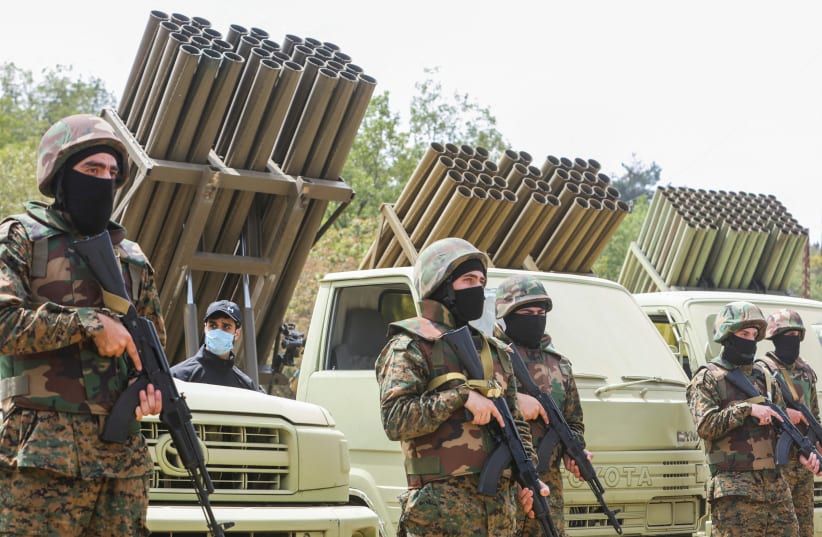
Lebanon’s Hezbollah has expanded its arsenal in ongoing hostilities with Israel, according to leader Sayyed Hassan Nasrallah.
In a speech on Wednesday, Nasrallah stated that the Iran-backed group had acquired new weapons. He did not specify the types of weapons but indicated they would soon be deployed in combat.
In an all-out war, Israel must expect us on land, by sea and by air
"Hezbollah leader Hassan Nasrallah
Here's an in-depth look at their weaponry and recent developments:
Hezbollah, the only Lebanese faction that has maintained its arms since the 1975-1990 civil war, has significantly strengthened its arsenal since the 2006 conflict with Israel.
In 2006, it possessed around 15,000 rockets, but current estimates indicate a nearly tenfold increase to nearly 150,000 rockets. Additionally, Hezbollah has acquired precision-guided missiles, further enhancing its combat capabilities.
Since 2006, Hezbollah has robustly expanded the size and the quality of its arsenal
Dina Arakji, an associate analyst at Control Risks consultancy
A significant portion of these weapons, belonging to the Shiite Muslim group Hezbollah, originates from Iran, Russia, or China.
Reportedly, Hezbollah possesses advanced Iranian weaponry that has not been deployed yet:
Hezbollah is unlikely to have used its most sophisticated weaponry yet
Dina Arakji
Hezbollah's drone operations have undergone significant evolution, encompassing a range of capabilities from one-way explosive drones to more advanced models capable of precision strikes and reconnaissance.
Their use of kamikaze drones has been notable, characterized by high autonomy and tactical advantages, making them cost-effective single-use weapons.
Among the variety of drones utilized by Hezbollah are models like the Shahed 136 and other Iranian unmanned aerial vehicles (UAVs) equipped with dual guidance systems, showcasing their growing sophistication in drone technology.
Kamikaze drones give a tactical advantage due to their high level of autonomy and have the ability to be launched from anywhere
Dina Arakji
Hezbollah's military strategist, Khalil Helou, outlined their diverse capabilities:
"In the case of all-out war, the party could go for strategic targets such as the port of Haifa in northern Israel, and offshore oil and gas infrastructure
Khalil Helou, military analyst and retired Lebanese army general
Recent Israeli actions, including strikes on Hezbollah's surface-to-air missile launcher, highlight escalating tensions in the region.
In response to perceived threats, Israeli aircraft have been observed taking precautionary measures, such as flying at low altitudes to identify and counter potential air defense threats effectively.
Hezbollah's state of readiness for a potential all-out conflict emphasizes the ongoing regional instability.
Warnings issued by Nasrallah regarding possible attacks on Israeli coastlines and infrastructure serve to underscore the strategic threats perceived by the group, contributing to heightened tensions in the region.
In conclusion, Hezbollah's evolving capabilities and strategic ambitions pose a significant challenge to regional stability, heightening fears of broader conflict amid escalating tensions with Israel.